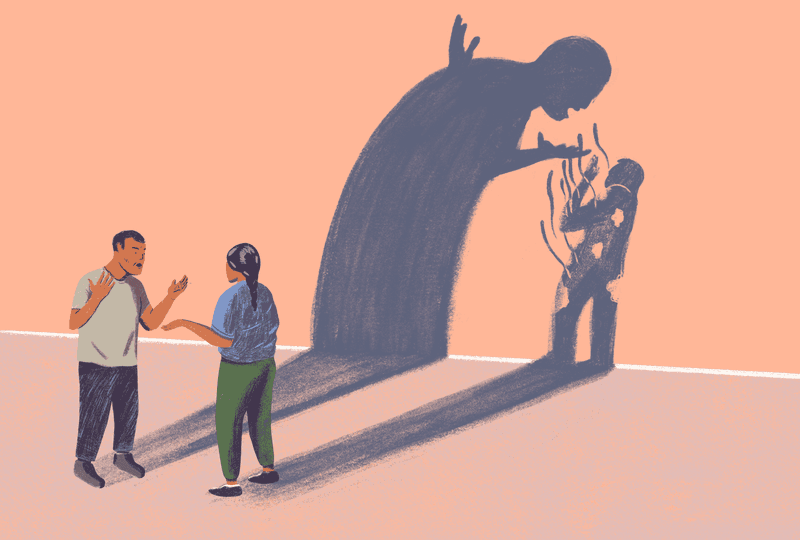19 Subtle Signs You’re Dealing With A Truly Difficult Person
Navigating relationships can often feel like a dance, and some partners have an uncanny ability to lead you across a minefield.
While everyone has challenging days, truly difficult individuals have a knack for making every interaction a test of patience. Identifying these subtle signs can save you from emotional exhaustion and help you establish healthier boundaries.
1. Every Conversation Somehow Circles Back to Them

“But enough about you, let’s talk about me.” While not always spoken, this sentiment echoes through every exchange with difficult individuals. Conversations are less about sharing and more about spotlighting their every thought and feeling.
No matter how you attempt to steer the discussion, it inevitably boomerangs back to them. Their stories aren’t just tales; they’re soliloquies that demand your attention, leaving little room for your input or experiences.
It’s a masterclass in conversational domination where they effortlessly command the floor. If you find your words consistently overshadowed, you’ve likely encountered someone with this self-centered conversational habit. Their world is the stage, and you’re just a reluctant audience member.
2. They Never Really Hear You

Talking to them feels like shouting into the void. Words bounce off their indifference like pebbles off a wall. Even the most heartfelt confessions or earnest suggestions are met with a nod or distracted glance.
They listen without truly hearing, mastering the art of selective attention. Your words, no matter how carefully crafted, seem to dissolve in the air, leaving you wondering if they ever landed at all.
This skillful disregard can make you feel invisible, questioning your relevance. When communication becomes an exercise in futility, it’s a subtle sign you’re dealing with someone who’s perfected the art of tuning out. It’s like having a conversation with an empty chair.
3. You Feel Drained After Talking to Them

You might not notice it at first, but after each interaction, you’re left feeling as though you’ve run a marathon. Their energy saps yours, leaving you to grapple with a fatigue that clings like a shadow.
It’s a stealthy exhaustion, creeping in with each word exchanged, each topic covered. By the end, all you want is a moment of peace, far from their draining presence. It’s not just physical but emotional fatigue that leaves its mark.
This is no ordinary tiredness; it’s a telltale sign you’ve encountered a difficult person whose presence takes more than it gives. A conversation should invigorate, not deplete, reminding you of the need to protect your emotional well-being.
4. They Have a Complaint for Every Solution

Optimism meets a formidable foe with those who find fault in every fix. Offer them a remedy, and they’ll counter with a new conundrum, a tale as old as time.
To them, problems are puzzles to ponder over but never to solve. Solutions are mere stepping stones to fresh grievances, maintaining an endless loop of dissatisfaction.
It’s a never-ending cycle that leaves problem-solvers exasperated and weary. Their knack for finding the cloud in every silver lining is a subtle sign of their difficult nature. Navigating interactions with them requires patience and the ability to recognize when their complaints are less about solutions and more about perpetuating their narrative.
5. You Second-Guess Yourself Around Them

Confidence takes a backseat in their presence. You find yourself doubting decisions, questioning instincts, all while searching for their elusive approval.
Their subtle manipulations are like whispers in your ear, sowing seeds of self-doubt that take root in your psyche. It’s a dance of uncertainty, where your every move feels scrutinized and second-guessed.
Even the most self-assured individuals can find themselves adrift in such interactions. It’s a telltale sign of their influence—an ability to make you question yourself in ways you hadn’t considered before. When self-doubt becomes your constant companion, it’s a clear indication of their difficult demeanor.
6. You Always Feel Like You’re Walking on Eggshells

Every word, every action feels like a potential misstep. In their presence, you tread carefully, wary of setting off yet another emotional landmine.
Their reactions are unpredictable, their tempers, a storm waiting to brew. The air is thick with tension, a palpable reminder of the caution you must exercise.
This constant vigilance becomes second nature, a subtle sign of the difficult dynamic at play. It’s a relationship built on uncertainty, where one wrong move can lead to a cascade of consequences. Navigating such territory requires a delicate balance, a skill honed by those accustomed to their volatile nature.
7. They Give Compliments That Land Like Insults

Their praise is a double-edged sword, cutting into your confidence while masquerading as a compliment. It’s a verbal sleight-of-hand that leaves you questioning the intent behind their words.
“Nice work…for a change,” they might say, cloaked in a smile that doesn’t reach their eyes. The compliments linger in the air like smoke, leaving you to decipher their true meaning.
This subtle art of backhanded praise is a hallmark of difficult individuals. It’s a game they play with words, one that keeps you on edge, wondering if the compliment was genuine or a cleverly disguised critique.
8. You’re Always the One Reaching Out

It’s a one-way street, with you playing the role of initiator, time and again. Calls, texts, plans—they all originate from your end, a pattern as predictable as the sunrise.
Their silence is deafening, a reminder of their disinterest in maintaining the connection. Your efforts to bridge the gap go unnoticed, overshadowed by their apathy.
This imbalance speaks volumes, a subtle sign of their unwillingness to meet you halfway. In a world where connections should be mutual, this lopsided effort reveals the true nature of your relationship. It’s a dance for two, but they’ve left you dancing alone.
9. Apologies Don’t Happen—or Come with Strings

Their apologies are as rare as a blue moon, and when they do appear, they come with a catch. The words “I’m sorry” are foreign to them, a language they refuse to learn.
Instead, they offer apologies wrapped in excuses, shifting blame to external forces or, worse, onto you. Their words are hollow, devoid of genuine remorse.
This reluctance to own up to mistakes is a subtle sign of their difficult nature. Accountability is anathema to them, and their apologies, when given, are mere performances. It’s a dance of deflection, where the apology serves more as a tool for manipulation than a gesture of sincerity.
10. They’re Allergic to Accountability

Responsibility? Not their forte. When things go awry, they’re quick to dodge blame, pointing fingers in every direction but their own.
Accountability is a foreign concept, a burden they skillfully avoid. Their knack for shifting blame is an art form, a subtle dance that absolves them of any wrongdoing.
This inability to own up to mistakes is a hallmark of their difficult nature. In their world, accountability is an inconvenience best left to others. If you find yourself constantly shouldering the blame, you’ve likely encountered someone with this allergic reaction to responsibility.
11. Boundaries Are Seen as a Rejection

Setting boundaries feels like navigating a minefield with them, each line drawn perceived as a personal affront. They’re not just resistant; they’re offended by the notion of limits.
Their reaction is swift and emotional, turning a simple request into a dramatic ordeal. Your attempt to maintain personal space is met with hostility, as though you’ve declared war.
This inability to respect boundaries is a subtle sign of their difficult nature. In their world, boundaries are barriers they must break, not respect. It’s a challenging dynamic that leaves you defending your right to personal peace.
12. They “Forget” Things That Matter to You

Important dates, personal achievements, even your birthday—all seem to slip their mind with astonishing regularity. It’s not just forgetfulness; it’s selective memory at its finest.
Their “forgetfulness” feels calculated, as if your priorities never quite make it onto their radar. You’re left feeling insignificant, your important moments overshadowed by their indifference.
This consistent oversight speaks volumes, a subtle sign of their difficult nature. In a world where acknowledgment is simple courtesy, their inability to remember is a subtle slight that cuts deep. It’s a reminder of where you truly stand in their list of priorities.
13. Their Stories Always Paint Them as the Victim

In their tales, they are perpetually wronged, a victim of circumstances beyond their control. Their stories are crafted with care, casting them in a sympathetic light.
Every setback, every slight is magnified, while their role is minimized. It’s a narrative they weave with finesse, a subtle manipulation that garners sympathy and absolves responsibility.
This victim mentality is a subtle sign of their difficult nature. It’s a tale as old as time, where the world is against them, and they are its innocent casualty. If you find yourself drawn into their web of woe, you’ve likely encountered someone adept at playing the victim.
14. They Turn Everything into a Competition

To them, life is a contest, and every interaction, a chance to win. Conversations become battles, where their achievements must outshine yours.
Even in the most mundane exchanges, there’s a need to one-up, to prove their superiority. Their competitive nature overshadows camaraderie, turning relationships into rivalries.
This constant need to compete is a subtle sign of their difficult nature. In their world, there are no equals, only winners and losers. If you find yourself caught in their competitive web, it’s a clear indication of their challenging demeanor.
15. You Feel Small Around Them—Even When You Shouldn’t

Their presence diminishes yours, reducing your confidence to a whisper. No matter your accomplishments, you feel overshadowed, struggling to assert your worth.
It’s an unspoken dynamic, a subtle power play that leaves you questioning your place. Their aura commands attention, leaving little room for your voice to be heard.
This feeling of smallness is a subtle sign of their difficult nature. In their world, your light must dim so theirs can shine. If you find yourself shrinking in their presence, it’s a clear indication of the challenging energy they bring into the room.
16. Their Energy Is Loud, Even When They’re Quiet

Even in silence, their presence is deafening. They exude an energy that fills the room, drawing attention without uttering a word.
It’s a magnetic aura, one that demands notice, even when they’re not actively seeking it. Their quietude is deceptive, masking the influence they wield.
This loud energy is a subtle sign of their difficult nature. In their world, silence speaks volumes, a testament to their commanding presence. If you find yourself unable to ignore them, even in their quietest moments, it’s a clear indication of the challenging dynamic they introduce.
17. They React Big to Small Things—but Small to Big Ones

Their reactions are as unpredictable as a summer storm. A spilled coffee becomes a catastrophe, while life-altering news barely registers on their radar.
This inconsistency is a hallmark of their difficult nature, leaving you to question the validity of their emotional responses. It’s a perpetual rollercoaster, where every twist and turn defies logical explanation.
This ability to magnify the mundane while minimizing the monumental is a subtle sign of their challenging demeanor. If you find yourself caught in the whirlwind of their erratic reactions, it’s a clear indication of the difficult dynamic you’re facing.
18. You Catch Yourself Dreading Interactions

Anticipation turns to dread at the thought of your next encounter. Their presence is a cloud that looms large, casting a shadow over your day.
It’s a feeling that creeps in, a subtle sign of the difficulty they bring into your life. Each interaction is a potential minefield, leaving you on edge and anxious.
This dread is a hallmark of their challenging nature. In their world, interactions are obligations, not pleasures. If you find yourself dreading each encounter, it’s a clear indication of the challenging energy they bring to the table.
19. They Make Chaos Feel Normal

Chaos is their comfort zone, an environment in which they thrive. Their life is a whirlwind of disorder, with you being swept along for the ride.
Organization is an alien concept, replaced by a constant state of flux that leaves you reeling. Their normal is a state of confusion, where plans dissolve into disarray.
This ability to make chaos feel normal is a subtle sign of their difficult nature. In their world, stability is a myth, and unpredictability reigns supreme. If you find yourself lost in their world of chaos, it’s a clear indication of the challenging dynamic they introduce.







